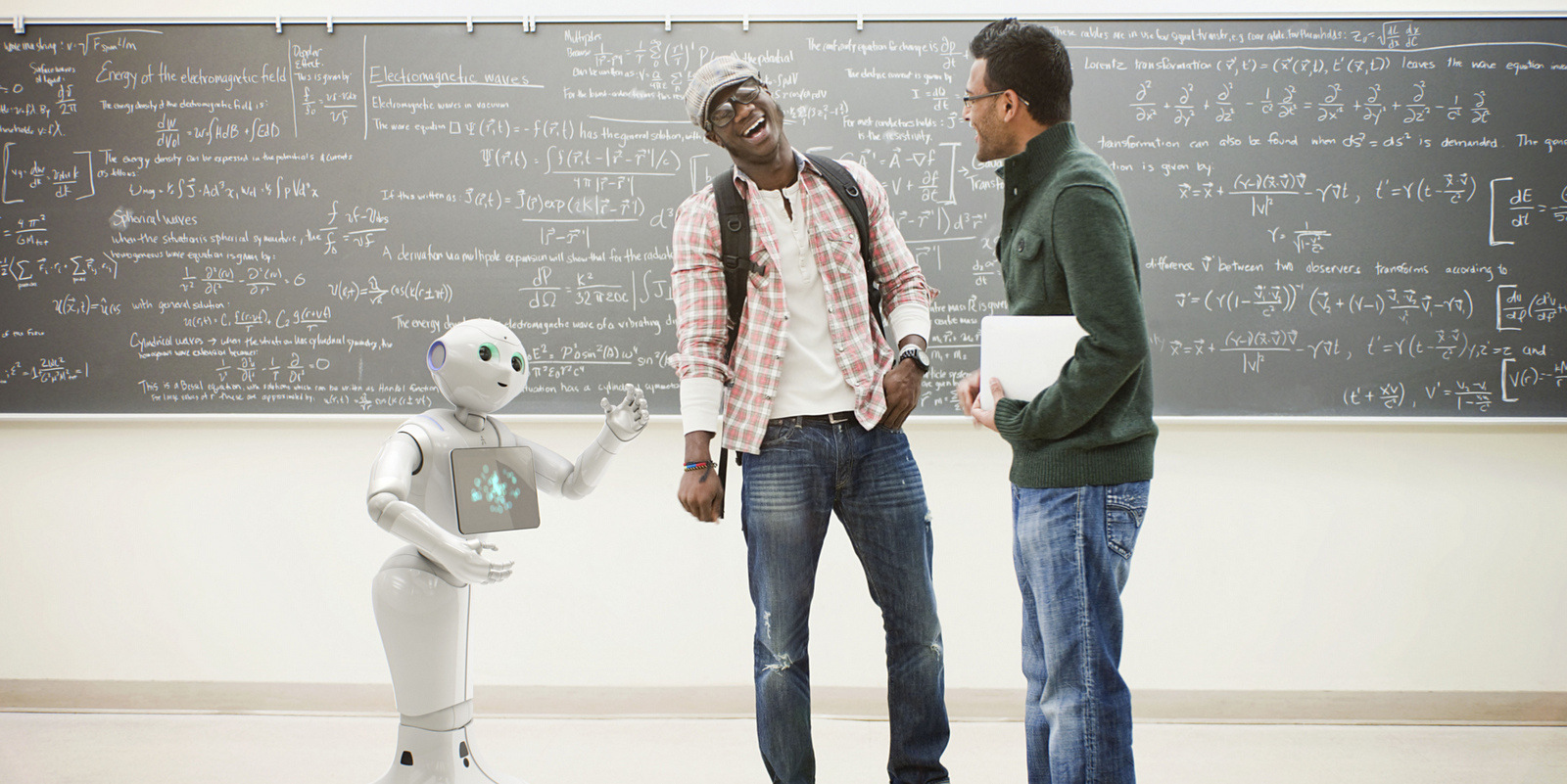A robotics ethicist is calling for a new type of legal protection that would apply specifically to robots.
Though “robot rights” are a familiar concept from robotics academia, Yueh-Hsuan Weng, a co-founder of the ROBOLAW.ASIA Initiative think tank at Peking University, is the latest to advocate for them in light of one man’s brawl with a robot at a mobile phone store early last month.
Surveillance footage shows 60-year-old Kiichi Ishikawa kicking the robotic clerk at a SoftBank mobile phone store, which Ishikawa says he did because he did not like the clerk’s attitude. Under Japanese law, he can be charged with damage to property but not injury or assault, as those are charges reserved for incidents with human victims. Weng tells Phys.org that this is an inadequate legal paradigm now.
As more-advanced robots can already react to basic stimuli, navigate complex environments, and use specialized “intelligence” to accomplish narrowly defined tasks, they present themselves as far from human but also as something rather different from a toaster or basic tool. Weng calls for a set of laws to guide human interaction with robots as they become more common and more social. He argues that they are a “third existence,” after people and property, deserving of their own legal protections.
This is in line with the thinking of Ryan Calo, a robo-ethicist and professor of law at the University of Washington who argues extensively that robotic technology will bring about drastic updates to the law as it proliferates. “Any time you’re proposing legal protections for humanoid robots,” he explained by phone, “it’s important to remember that it’s not because of anything the robot is doing, but rather it’s because of how human beings project life onto these things.”
Indeed, Ishikawa lashed out against the robotic clerk because he thought it had an attitude, a uniquely human thing to have. His victim was a Pepper robot, which was designed to read human emotion by interpreting people’s tone of voice and body language.
Calo tends to agree that a person attacking a humanoid robot is worthy of special legal concern; they might deserve a penalty more severe than someone vandalizing something non-anthropomorphic. “The same kind of person who kicks a dog might also abuse other people,” he reasoned.
Research confirms that humanoid robots occupy a unique place in human perception. In 2012, psychologist Peter Kahn engaged 90 children in a consistent, controlled interaction with a humanoid named Robovie. The children hugged the robot, shook its hand, and even got to see it correct an adult on the origins of sea coral. When the kids were surveyed immediately after spending time with Robovie, results showed that a majority of them believed that the robot “had mental states insofar as they said that Robovie was intelligent (79%), was interested in the coral aquarium (76%), could be sad (64%), and had feelings in general (60%).” The experiment suggests that robots can certainly be perceived as something more than a collection of metal and electronics.
“If psychologists are struggling with categorizing humanoid robots, then it shouldn’t surprise us that the law might as well,” Calo said.
https://www.youtube.com/watch?v=kCFYw8mIqcc
H/T Phys.org | Photo via Aldebaran



